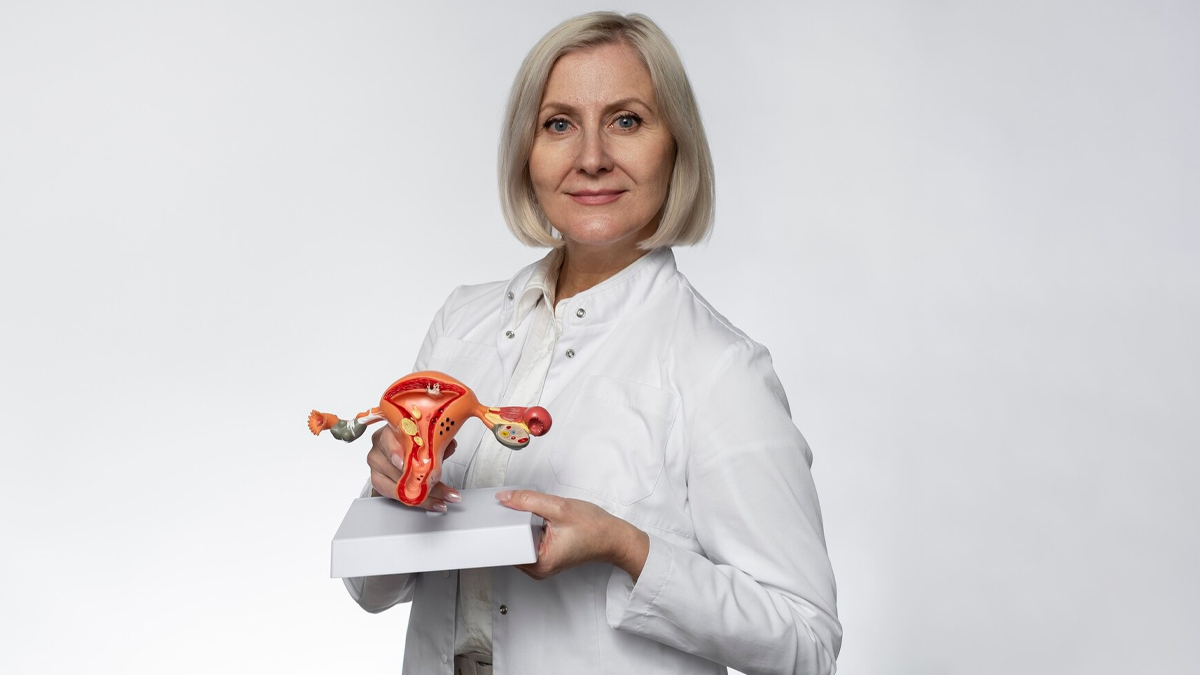
Menopause marks the end of a woman's reproductive years, just like menstruation marks the beginning. Naturally, it brings various psychological changes, particularly hormonal fluctuations, which contribute to several symptoms. Some common symptoms include hot flashes, vaginal dryness, mood swings, and more.
Table of Content:-
In addition to the symptoms, menopause may also increase the risk of certain health conditions as well as infections like Urinary Tract Infection (UTI). In general, UTI, a bacterial infection, is more prevalent in women than in men. In menopausal women, the risk can further increase. Read to understand more about this risk.
Also Read: Can You Reverse Early Menopause Naturally? Expert Weighs In
Understanding The Risk Of UTI In Women

Women are more susceptible to UTIs than men, according to several studies, including a 2021 study published in the journal Menopause Review. This increased risk is attributed to anatomical factors like shorter urethras, urethra’s proximity to the anus, and increased sexual activity. Additionally, factors like diaphragm use and menopause further contribute to susceptibility.
Why Menopausal Women Are At A Greater Risk Of UTI

In an interaction with the OnlyMyHealth team, Dr Santosh Gawali, Senior Consultant Urologist and Transplant Surgeon, Jaslok Hospital and Research Centre, Mumbai, says, "Menopause causes reduction of hormone levels, i.e., oestrogen and progesterone. Oestrogen maintains elasticity of the vaginal and urethral mucosa. Loss of oestrogen causes mucosal thinning, leading to dryness, irritation, and other changes, i.e., narrowing of the vaginal and urethral meatus causing outlet obstruction that sets the stage for UTIs."
According to the doctor, oestrogen plays a crucial role in maintaining healthy flora in the vagina and bladder. A decline in healthy flora increases susceptibility to pathogenic bacterial invasion. Additionally, age-related constipation and reduced water intake are other aetiologies.
Symptoms Of UTI To Watch Out For
Some of the common symptoms of UTI in women include:
- Burning urination
- Fever
- Increased frequency and urgency of urination
- Nocturia, or waking up one or more times during the night to urinate
Dr Gawali explains, “Narrowing of the urethral outlet can lead to incomplete voiding, further increasing the risk of UTI. In such cases, the female can present with a sense of incomplete voiding/straining with fever and burning micturition (urination). Urethral mucosal changes can lead to the development of the urethral caruncle, a benign, fleshy outgrowth at the urethral meatus, most common in postmenopausal women.
Also Read: Menopause Symptom: How To Manage Nighttime Hot Flashes
How To Reduce The Risk Of UTI During Menopause

To help reduce the incidence of UTIs, menopausal women can opt for the following foods:
- Fermented dairy (yoghurt) contains probiotic bacteria.
- Foods rich in vitamin C, such as oranges, lemons, strawberries, and green leafy vegetables
- Adequate hydration
- Drink cranberries, as it maintains urinary pH and contains compounds called proanthocyanidins that may prevent bacteria from adhering to the urinary tract lining.
Menopausal women can also opt for hormonal therapy in the form of oral oestrogen and progesterone supplements or vaginal oestrogen cream with low-dose antibiotics. It can mitigate the effects of hormonal withdrawal during menopause.
Treatment also includes medical management of constipation.
Conclusion
When it comes to UTI risk, women need to be extra cautious, particularly menopausal women. During menopause, oestrogen levels drop, which can affect vaginal health. Dr Gawali says, "Patients may require medical assistance with recurrent UTI in the form of antibiotics, oral or IV, depending on the severity of symptoms like bothersome nocturia/urgency/urge incontinence." It is best to consult a doctor to understand individual circumstances.
Also watch this video
How we keep this article up to date:
We work with experts and keep a close eye on the latest in health and wellness. Whenever there is a new research or helpful information, we update our articles with accurate and useful advice.
Current Version